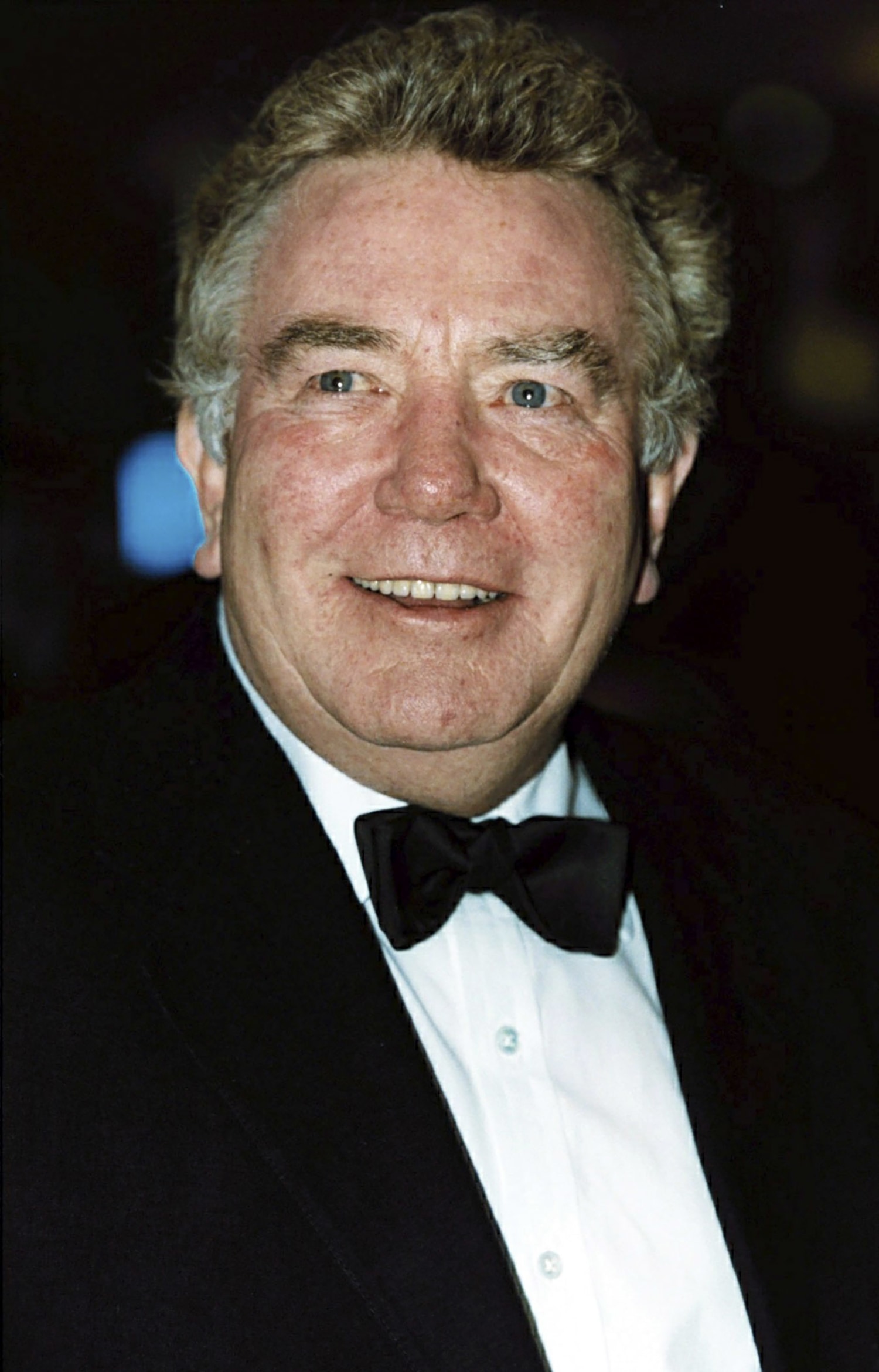Albert Finney
Albert Finney

Albert Finney, born on May 9, 1936, was a distinguished English actor whose career spanned across theatre, film, and television. He began his acting journey by attending the prestigious Royal Academy of Dramatic Art, honing his skills on the stage before transitioning to film in the early 1960s. Finney's breakthrough came with his role in "The Entertainer" (1960), directed by Tony Richardson, marking the start of his illustrious movie career.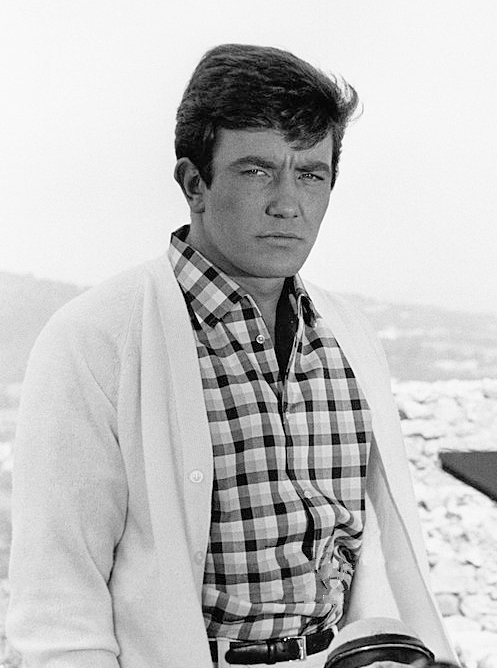
Throughout his career, Finney delivered memorable performances in a diverse range of roles. He garnered acclaim for his roles in films such as "Saturday Night and Sunday Morning" (1960), "Tom Jones" (1963), "Two for the Road" (1967), "Scrooge" (1970), "Annie" (1982), and "The Dresser" (1983). His versatility as an actor was evident in his ability to tackle both dramatic and comedic roles with equal finesse.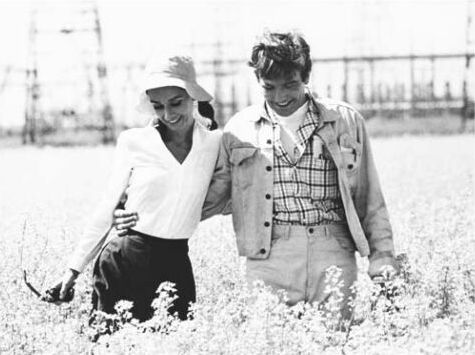
Finney's talent earned him numerous accolades, including awards from BAFTA, Golden Globe, Emmy, Screen Actors Guild, Silver Bear, and Volpi Cup. He received five Academy Award nominations, including four for Best Actor for his performances in "Tom Jones," "Murder on the Orient Express" (1974), "The Dresser," and "Under the Volcano," and one for Best Supporting Actor for "Erin Brockovich" (2000).
One of his most acclaimed performances came in the role of Winston Churchill in the 2002 BBC–HBO television biographical movie "The Gathering Storm," for which he received widespread acclaim and several awards.
In addition to his film work, Finney also made notable appearances in television, including his portrayal of Winston Churchill. His contributions to the entertainment industry left an indelible mark, earning him a place among the most esteemed actors of his generation. Finney's legacy continues to be celebrated for his exceptional talent and contributions to the world of acting.
Albert Finney's early career was marked by a blend of stage, television, and film performances. While studying at RADA, he made his television debut in Oliver Goldsmith's "She Stoops to Conquer," broadcast by the BBC in 1956. Graduating from RADA, he joined the esteemed Royal Shakespeare Company, where he showcased his talent in various productions.
Despite receiving a contract offer from the Rank Organisation, Finney opted to perform for the Birmingham Repertory Theatre, demonstrating his commitment to the stage. He appeared in productions such as "The Miser" and "Henry V," showcasing his versatility as an actor. Additionally, he made notable television appearances in shows like "The Claverdon Road Job" and "View Friendship and Marriage."
In 1959, Finney made his London stage debut in "The Party," directed by Charles Laughton. He also appeared at Stratford in the title role of "Coriolanus," replacing Laurence Olivier due to illness. His television work included guest appearances in series like "Emergency-Ward 10" and portraying Lysander in a TV adaptation of "A Midsummer Night's Dream."
Finney's film career took off with his role in Tony Richardson's "The Entertainer" (1960), alongside Laurence Olivier. He gained widespread recognition for his portrayal of a disillusioned factory worker in Karel Reisz's "Saturday Night and Sunday Morning" (1960), based on Alan Sillitoe's novel.:max_bytes(150000):strip_icc():focal(800x0:802x2)/albert-finney-6-2000-6516f414f8174ddca9bb59b7803744b4.jpg)
Despite being chosen to play T. E. Lawrence in "Lawrence of Arabia," Finney declined the role due to contractual concerns. Instead, he created the title role in John Osborne's play "Luther" (1961), which garnered critical acclaim during its run in London, Nottingham, Paris, and New York.
Finney's early career showcased his remarkable talent and versatility across various mediums, setting the stage for his future success in the entertainment industry.
Albert Finney's career continued to evolve after his success in "Tom Jones." Despite the acclaim, he faced challenges, including a disappointing reception for his performance in "Night Must Fall" (1964). Nonetheless, he remained active both on stage and screen, demonstrating his versatility and commitment to his craft.
Following a period of stage productions and a hiatus from film, Finney returned to the screen with "Two for the Road" (1967), co-starring Audrey Hepburn. He also ventured into production with Memorial Productions, collaborating on projects like "Privilege" (1967) and "If...." (1968). Additionally, he made his directorial debut with "Charlie Bubbles" (1968), a project he described as intensely creative.
In the early 1970s, Finney continued to balance stage and film work, starring in movies like "Scrooge" (1970) and "Murder on the Orient Express" (1974), where he portrayed Hercule Poirot. While the role brought him acclaim, he expressed frustration at being typecast.
Seeking a break from the film industry, Finney focused on stage acting, particularly at the National Theatre in London. He immersed himself in classical roles, including Hamlet and Macbeth, honing his craft and deepening his commitment to live performance.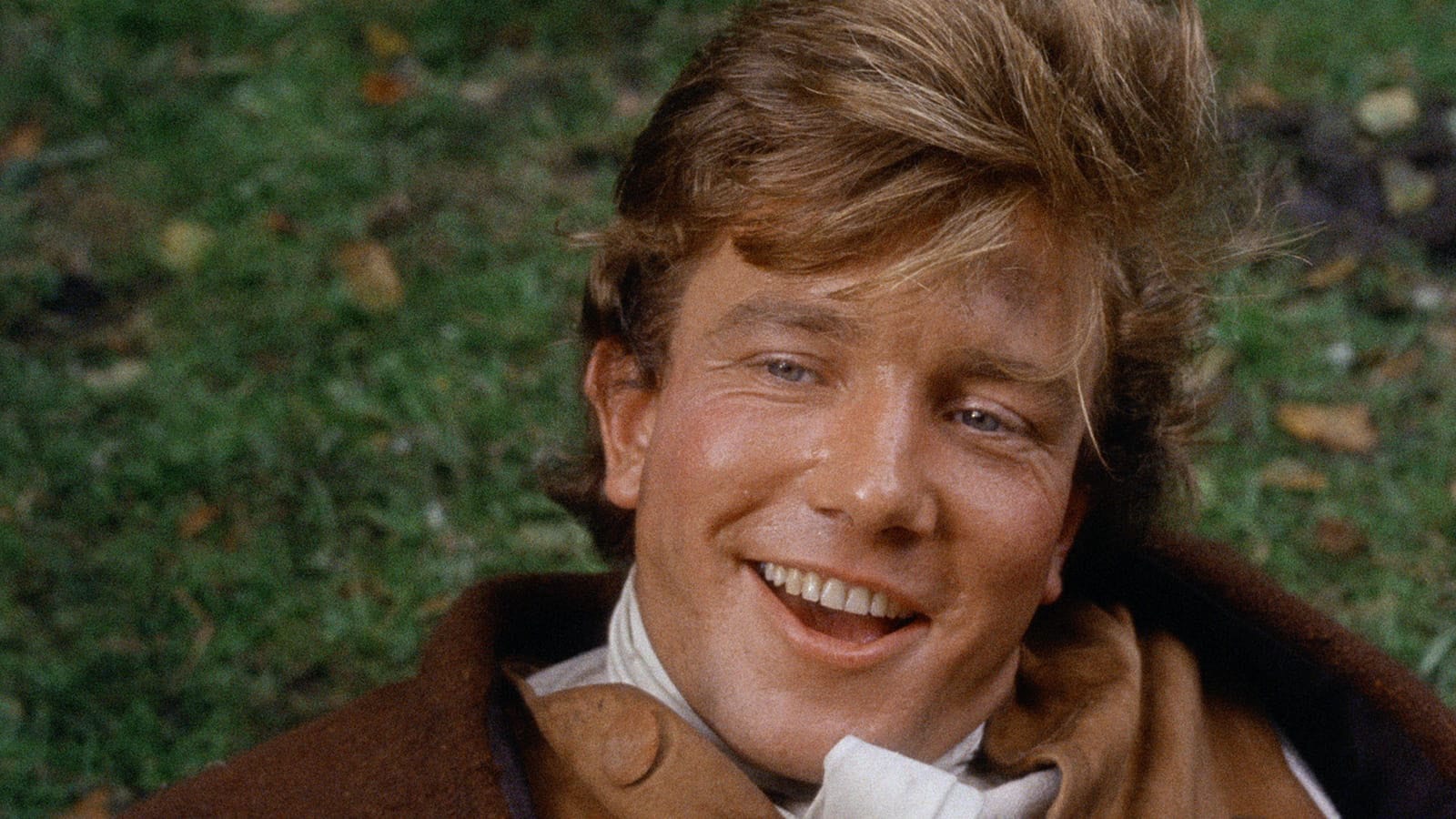
During this time, Finney also ventured into television, starring in the TV film "Forget-Me-Not-Lane" (1975) and making a brief appearance in Ridley Scott's "The Duellists" (1977). He even released an album through Motown, showcasing his diverse talents beyond acting.
Albert Finney's career trajectory reflected his dedication to the art of acting, embracing challenges and continually seeking opportunities for growth and exploration across various mediums.
After a hiatus from major film roles, Albert Finney returned to the cinema with a determination to showcase his versatility and range as an actor. Seeking to shed the image of Hercule Poirot from "Murder on the Orient Express," he embarked on a series of six diverse movies.
The first three films, "Loophole" (1981), "Wolfen" (1981), and "Looker" (1981), were thrillers that allowed Finney to flex his acting muscles in different genres. Despite mixed receptions for some of these movies, Finney received praise for his performance in the drama "Shoot the Moon" (1982), which demanded a deeper emotional portrayal.
In contrast, Finney's turn as Daddy Warbucks in "Annie" (1982) provided a lighter, more theatrical role that allowed him to explore a different facet of his acting abilities. He described the experience as a refreshing change after the intensity of "Shoot the Moon."
One of Finney's most acclaimed roles during this period was in "The Dresser" (1983), where he portrayed a veteran actor struggling with his performance in "King Lear." This performance earned him nominations for several prestigious awards, including the Academy Award for Best Actor.
Continuing his success on the small screen, Finney made his American television debut in the title role of "Pope John Paul II" (1984). He also received critical acclaim for his role in "Under the Volcano" (1984), which earned him another Best Actor Oscar nomination.
Throughout the late 1980s and into the 1990s, Finney continued to deliver compelling performances across various mediums. He appeared in a range of films and television productions, showcasing his versatility in roles ranging from gangster bosses to gay bus conductors.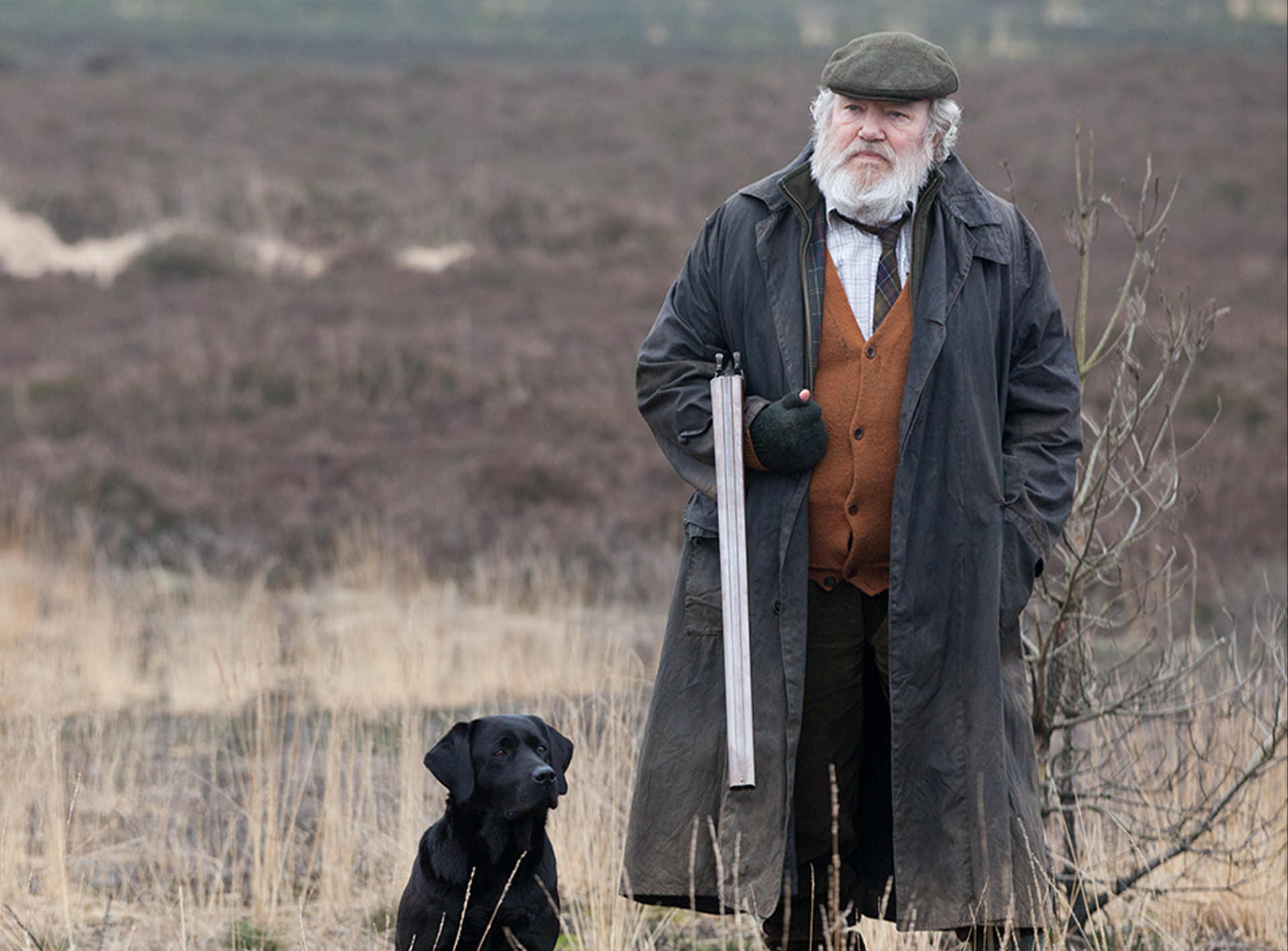
With each project, Albert Finney reaffirmed his status as one of the most talented and versatile actors of his generation, captivating audiences with his compelling portrayals and leaving a lasting legacy in the world of film and theater.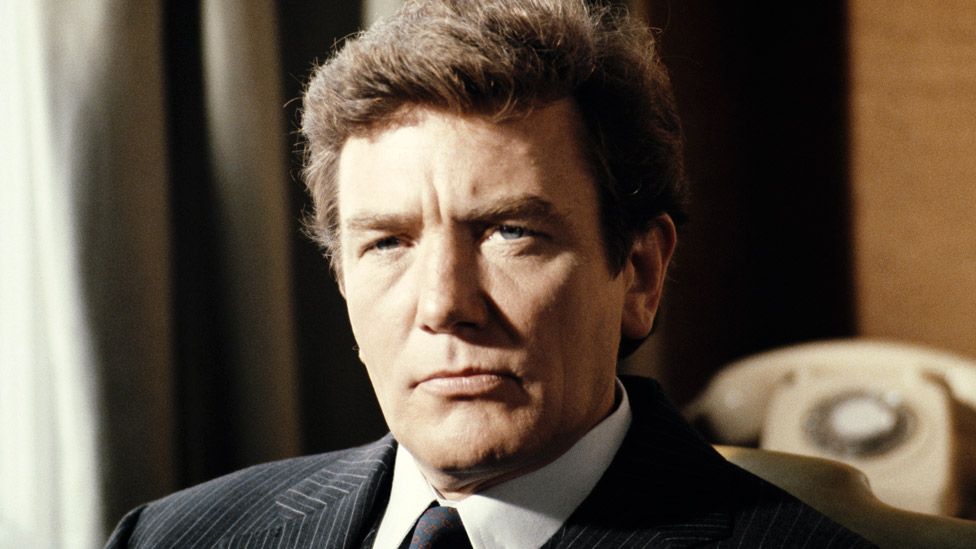
References
- "Obituary: Albert Finney". BBC News. 8 February 2019. Retrieved 8 February 2019.
- a b Quentin Falk (1993). Albert Finney in Character: A Biography. Robson Books. ISBN 978-0-86051-823-5.
- ^ "Goldsmith Televised". The Stage. No. 3900. 12 January 1956. p. 12. Retrieved 10 February 2019 – via British Newspaper Archive.
- ^ "She Stoops to Conquer: Part 1". The Radio Times. No. 1677. 30 December 1955. p. 44. ISSN 0033-8060. Retrieved 10 February 2019.
- a b c d e f g h i Finney comes back to film Farber, Stephen. New York Times 26 July 1981: A.1.
- ^ Wife sues Albert Finney, The Guardian 7 July 1961: 19.
- ^ Laurence Olivier, Confessions of an Actor, Orion, 1994, p. 243

